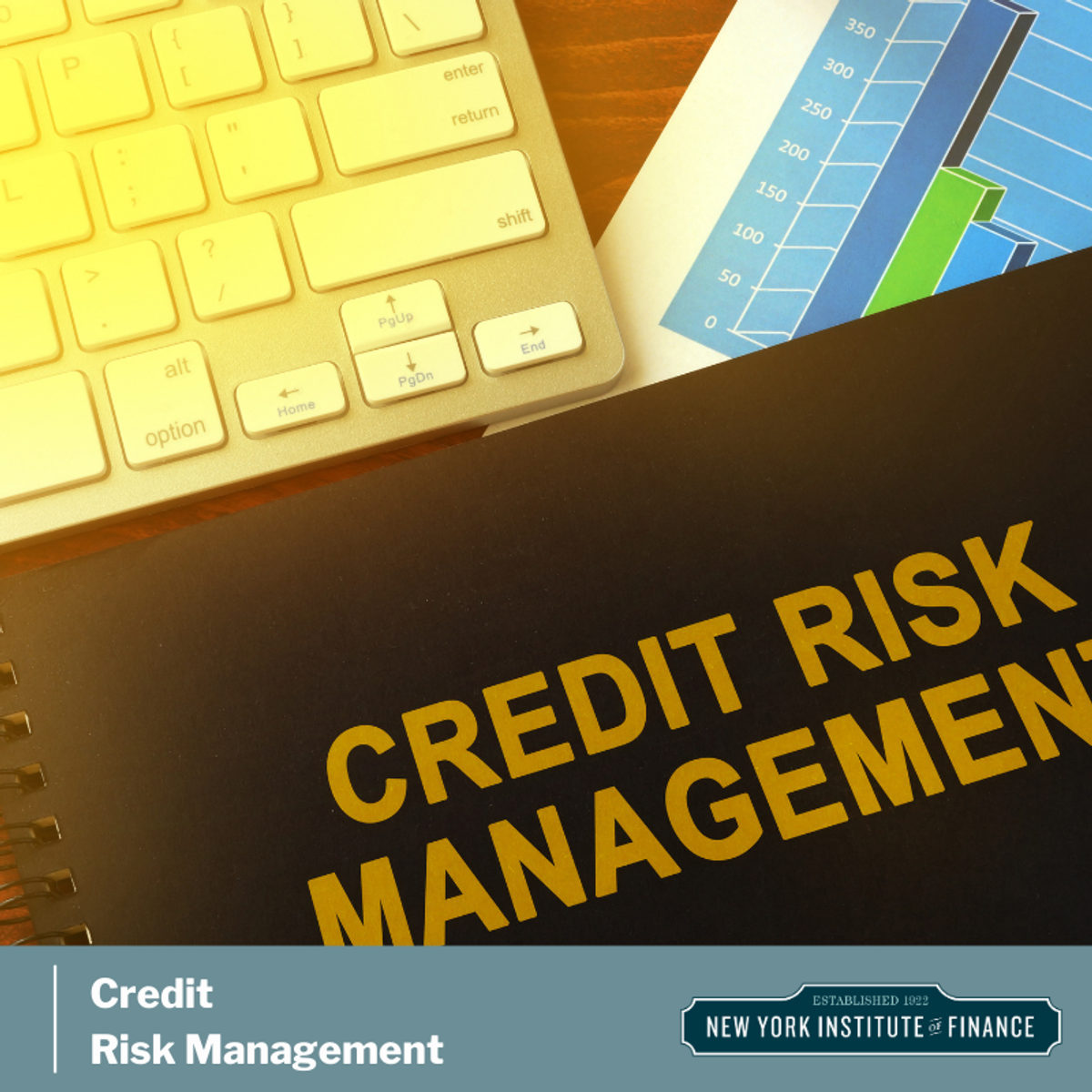Back to Courses









Finance Courses - Page 7
Showing results 61-70 of 270

Forex - Trading Around the World
In this course, we’ll introduce you to the foreign currency market, including who participates in it and some of their reasons for doing so. You’ll also gain an understanding of the complex nature of certain trading products, as well as some of the risks investors typically face.
We’ll also explore the use of margin in your account and provide you with a case study, showing how to invest in the stock of a non-domestic company listed on a foreign exchange, as well as guide you through entering an overseas trade on an online trading platform.
By the end of this course, you should gain a broad overview of the foreign exchange market, understand certain major currency products, and acquire some practical skills that will help you to dive-in and make trades on your own.

Using Machine Learning in Trading and Finance
This course provides the foundation for developing advanced trading strategies using machine learning techniques. In this course, you’ll review the key components that are common to every trading strategy, no matter how complex. You’ll be introduced to multiple trading strategies including quantitative trading, pairs trading, and momentum trading. By the end of the course, you will be able to design basic quantitative trading strategies, build machine learning models using Keras and TensorFlow, build a pair trading strategy prediction model and back test it, and build a momentum-based trading model and back test it.
To be successful in this course, you should have advanced competency in Python programming and familiarity with pertinent libraries for machine learning, such as Scikit-Learn, StatsModels, and Pandas. Experience with SQL is recommended. You should have a background in statistics (expected values and standard deviation, Gaussian distributions, higher moments, probability, linear regressions) and foundational knowledge of financial markets (equities, bonds, derivatives, market structure, hedging).
The Blockchain
Begin your exploration of blockchain technologies with a look at fundamental blockchain concepts along with an application in which blockchain technology plays a critical role — cryptofinance. This course also introduces distributed digital systems in terms of software and network architecture, and shows how these systems underlie the functionality of the blockchain. In this and the following courses in the specialization you'll have a chance for hands-on-practice to cement your learning.
This course requires the purchase of two books for the completion of assignments:
Drescher, D. (2017). Blockchain Basics: A Non-Technical Introduction in 25 Steps. (ISBN-13: 978-1484226032)
Antonoupoulos, A. M. (2017). The Internet of Money, Volume Two. (ISBN-13: 978-1947910065)

Creating and Developing a Tech Startup
This course will allow you to identify and evaluate opportunities for creating a tech business, and to better understand its principal issues on a human, technical, commercial, environmental and financial level.
As such, you will obtain solid foundations either for building your own tech business, or for joining one.
Deciding to create or to join a tech business in these early years is an out-of-the-ordinary adventure, and it certainly won’t be straightforward: you need to be ready to accept that not all "good" ideas will lead to success, and that only a very small number of projects lead to great success. You must learn to overhaul your relationship with failure, which is a valuable source of experience and should be managed according to the logic of “acceptable loss”: the entrepreneur loves uncertainty, not excessive risk. The creation of tech businesses gives you a genuine opportunity to change the world, but requires you to adopt a particular state of mind and to be able to acquire knowledge, know-how and interpersonal skills.
You will have the chance to work alongside passionate and exciting people from a whole multitude of backgrounds. From a technological point of view, these women and men have constructed numerous companies of a global scale.
The development trajectory of a tech business is full of mishaps which require you to be both agile and greatly prepared to build on a strong idea, choose your market, develop your proposal, assemble a team worthy of the task in hand, and finding financing.
The course is made up of methodological sessions as well as first-hand accounts from entrepreneurs and people who have succeeded in creating tech businesses themselves. You will thus be able to get to know the essential dilemmas with which high-tech business creators are confronted with, beginning with the initial decision to set up your very own structure, which itself represents a significant life decision.
You will also see that the creation of a tech business is much more a collective adventure than an individual one.
In the English version, all of the reading content, quizzes and assesments will be in English, whilst the videos will have French audio and English subtitles.
Fundamentals of Accounting Capstone
**You should complete all other courses in the Fundamentals of Accounting Specialization before beginning this course.**
The capstone project will be set in the context of a realistic small-business enterprise, and will require you to think deeply and apply the accounting concepts presented in the other courses in the Fundamentals of Accounting. While navigating the daily operations of the business, you will have an opportunity to consider the accounting implications of the economic events encountered, as well as how these economic events should be communicated to decision makers.
If you enjoy this business course and are interested in an MBA, consider applying to the iMBA, a flexible, fully-accredited online MBA at an incredibly competitive price offered by the University of Illinois. For more information, please see the Resource page in this course and onlinemba.illinois.edu.

Corporate finance: Know your numbers 2
Every manager must have a foundational understanding of financial management. This course will prepare you for responsible and sustainable leadership from a financial management perspective. Via structured learning activities (video lectures, quizzes, discussion prompts and written assessments) you’ll learn the key aspects of effective financial management by focusing on: the assessment of an organisation’s financial health; planning future financial performance; financing of operations; and evaluating business and investment opportunities for the organisation. This course will emphasise how crucial sound financial management is for you and your organisation to be successful in the real-world.

Pharmaceutical and Medical Device Innovations
This course in the Healthcare Marketplace specialization gives the learner an in-depth view of the intellectual property creation that is vital to creating breakthrough technologies. Included is an understanding of the strategy deployed for pricing drugs and new technologies as well as the market sizing exercise to identify where future research and development investments should be made.

Credit Risk Management: Frameworks and Strategies
In this course, you will use business and industry analysis to understand companies, projects, business models, and financing proposals. You will then prepare qualitative risk analysis for specific companies to use as the basis for financial analysis, project analysis, and risk decisions. Lastly, you will understand how to use financial ratios and financial metrics to evaluate a company or project’s profitability, balance sheet, capital structure, and cash flow to assess overall financial performance and risk profile.

Python and Machine-Learning for Asset Management with Alternative Data Sets
Over-utilization of market and accounting data over the last few decades has led to portfolio crowding, mediocre performance and systemic risks, incentivizing financial institutions which are looking for an edge to quickly adopt alternative data as a substitute to traditional data. This course introduces the core concepts around alternative data, the most recent research in this area, as well as practical portfolio examples and actual applications. The approach of this course is somewhat unique because while the theory covered is still a main component, practical lab sessions and examples of working with alternative datasets are also key. This course is fo you if you are aiming at carreers prospects as a data scientist in financial markets, are looking to enhance your analytics skillsets to the financial markets, or if you are interested in cutting-edge technology and research as they apply to big data. The required background is: Python programming, Investment theory , and Statistics. This course will enable you to learn new data and research techniques applied to the financial markets while strengthening data science and python skills.

Introduction to Cost Accounting
By the end of the project, you will be able to use both absorption costing and activity-based costing to determine the cost of a product your company is making. This will allow you to determine the pricing of your product. This is directly relevant for management accountants, performance managers, marketers, and owners of a business.
Note: This course works best for learners who are based in the North America region. We're currently working on providing the same experience in other regions.
Popular Internships and Jobs by Categories
Find Jobs & Internships
Browse
© 2024 BoostGrad | All rights reserved